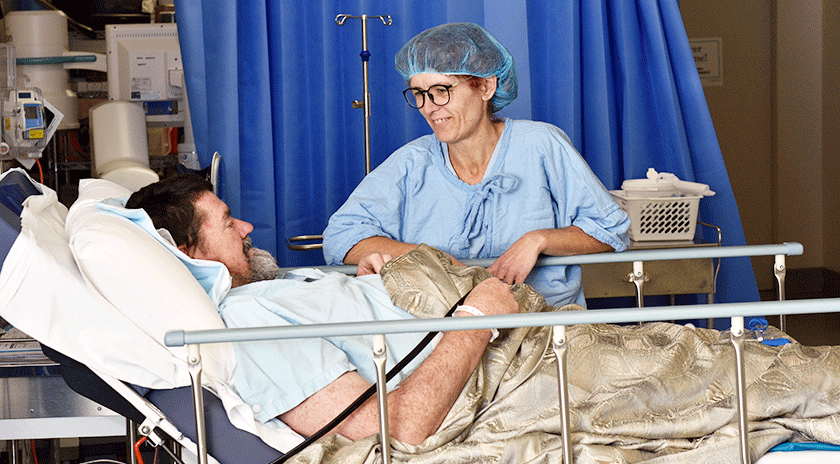- Our services
- Medical and surgical
- Bariatric surgery
 Our services
Our services
- Emergency Department
- Medical and surgical
-
- Allied health
- Cardiac rehabilitation
- Chronic pain management
- Exercise physiology
- Falls prevention and balance
- Hydrotherapy
- Inpatient rehabilitation
- Neurological rehabilitation
- Occupational therapy
- Oncology rehabilitation
- Orthopaedic rehabilitation
- Outpatient rehabilitation
- Parkinson's disease
- Physiotherapy
- Pulmonary rehabilitation
- Reconditioning
- Speech pathology
- Stroke rehabilitation
- Community and youth
- Healthcare at Home
Bariatric surgery

The surgery works by reducing the portion sizes you can eat, controlling hunger and may have additional hormonal and metabolic effects that promote weight loss. You are still required to follow healthy eating habits and exercise regularly to achieve optimal results.
Choosing to have bariatric surgery may not be an easy decision and can follow a long weight management battle. We work closely with you and your general practitioner (GP) to help you understand the physical and emotional changes you may experience.
Our expert surgical teams use the latest minimally invasive techniques in weight loss surgery to help you recover faster and with less pain compared to open surgery. In most cases, your hospital stay will range between one and four days depending on the procedure.
Bariatric surgery procedures
Procedures include:
Gastric sleeve
This procedure reduces the size of the stomach by surgically removing about two thirds of the outer part of the stomach. This leaves a long, narrow tube or sleeve which means you will feel full after consuming much less food. Removing most of the upper stomach (fundus) also decreases levels of the hunger hormone ghrelin. This is the most common weight loss procedure performed in Australia.
Gastric banding or lap-banding
An inflatable silicone band is tied around the upper end of the stomach, near the food pipe. It can be adjusted by injecting or removing fluid from a port placed under the skin. The pressure of the band forces you to eat slowly and reduces appetite. The band is removable if required.
Gastric bypass
There are many different types of gastric bypass. The stomach is usually divided into two sections with food only going into the smaller section. The small bowel is often also divided and rejoined so that food bypasses the larger section of stomach and the first part of the duodenum where digestion starts. This procedure may have particular advantages if you have type 2 diabetes or gastric reflux.
Intragastric balloon
A silicon balloon is inserted into the stomach via the mouth and food pipe (oesophagus) and inflated under vision using a fibreoptic telescope (endoscopy). Once inflated it restricts the amount you can eat and reduces hunger. It can be performed as a day procedure. The balloon must be removed after six months, through an endoscopy.
Benefits of bariatric surgery
Some benefits of bariatric surgery may include:
- significant and sustained weight loss
- increased energy
- reduced blood pressure
- reduced risk of diabetes, heart attack, stroke and other obesity-related conditions
- better overall health and wellbeing.
These benefits depend on your particular circumstances and require you to fully participate in necessary before and after care and management. You should consult a specialist in this area before deciding whether surgery is suitable for you.
You may be interested in...
